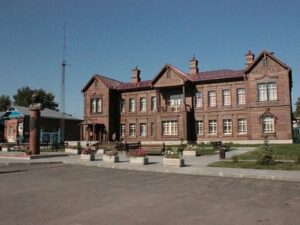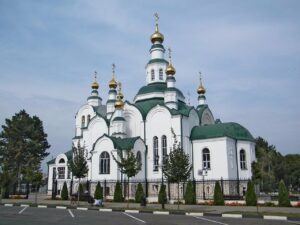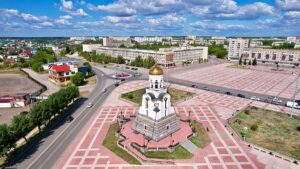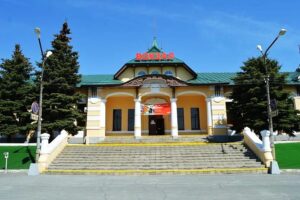Bochum: A Comprehensive Exploration of Germany’s Industrial Heartland

Introduction
Bochum, a vibrant city located in the Ruhr region of North Rhine-Westphalia, Germany, is a place where history, industry, culture, and nature intersect. Known for its rich industrial heritage, particularly in coal mining and steel production, Bochum has transformed itself into a modern urban center with a thriving cultural scene, renowned educational institutions, and lush green spaces. This article delves deep into the multifaceted nature of Bochum, exploring its history, architecture, cultural offerings, natural beauty, economic landscape, and community life.
Historical Background
Early History: Bochum’s history dates back to the early Middle Ages. The city’s name is believed to have originated from the Old German word “boch,” meaning brook or stream, indicative of the area’s natural features. Archaeological evidence suggests that the region was inhabited by Germanic tribes long before it became part of the Holy Roman Empire.
Medieval Period: During the medieval period, Bochum was a small, yet strategically significant town due to its location along important trade routes. The city’s development was closely linked to its natural resources, including the presence of coal seams that would later play a crucial role in its industrialization.
Industrial Revolution: The Industrial Revolution marked a transformative period for Bochum. The discovery of abundant coal deposits in the 19th century spurred rapid industrial growth, making Bochum a key player in the coal mining and steel industries. The establishment of the Bochumer Verein, a major steelworks company, further cemented the city’s status as an industrial hub. The population grew rapidly, attracting workers from across Germany and beyond.
World War II: Bochum, like many industrial cities, suffered extensive damage during World War II. The city’s industrial facilities were prime targets for Allied bombings, leading to significant destruction. Despite the devastation, Bochum’s post-war reconstruction efforts were swift, leading to a modern urban landscape interspersed with historical remnants.
Post-War Development: The latter half of the 20th century saw Bochum transition from heavy industry to a more diversified economy. The decline of coal mining and steel production was offset by the growth of new industries, education, and services. The establishment of Ruhr University Bochum in 1962 marked a significant milestone in the city’s development, fostering a vibrant academic and research community.
Architectural Highlights
Jahrhunderthalle Bochum: The Jahrhunderthalle, or Century Hall, is an iconic industrial monument turned cultural venue. Originally built in 1902 as part of the Bochumer Verein steelworks, the hall now hosts a variety of events, including concerts, theater performances, and exhibitions. Its striking industrial architecture, featuring a blend of steel and glass, makes it a symbol of Bochum’s industrial heritage and cultural renaissance.
Zeche Hannover: Zeche Hannover is a former coal mine that has been preserved as an industrial museum. Visitors can explore the site’s historic buildings, machinery, and exhibitions that showcase the history of coal mining in Bochum. The site’s steam engine hall, one of the oldest of its kind, is a highlight, offering insights into the technological advancements of the industrial era.
Bochum City Hall (Rathaus Bochum): The Bochum City Hall, completed in 1931, is a prime example of 20th-century architecture. Designed by the architect Karl Roth, the building combines elements of modernism and traditionalism. Its grand facade, adorned with sculptures and reliefs, reflects the city’s civic pride. The interior features an impressive council chamber and various artworks.
Ruhr University Bochum: The Ruhr University Bochum (RUB) campus is a blend of modernist architecture and natural landscapes. The university’s main buildings, designed by the architect Hentrich-Petschnigg & Partner in the 1960s, are notable for their functionalist style. The campus also features contemporary structures, green spaces, and art installations, creating a dynamic academic environment.
St. Peter and Paul Church: One of Bochum’s oldest churches, St. Peter and Paul Church, dates back to the 11th century. The church has undergone several renovations and expansions over the centuries, resulting in a blend of architectural styles, including Romanesque and Gothic. Its beautiful stained glass windows, intricate woodwork, and serene atmosphere make it a spiritual and historical landmark.
Cultural and Artistic Scene
Bochum Schauspielhaus: The Schauspielhaus Bochum is one of Germany’s most renowned theaters. Founded in 1919, it has a long tradition of innovative and high-quality theater productions. The theater’s repertoire includes classic plays, contemporary works, and experimental performances. Its modernist building, designed by Gerhard Graubner, is a cultural landmark in Bochum.
German Mining Museum (Deutsches Bergbau-Museum): The German Mining Museum in Bochum is the largest mining museum in the world and a must-visit for anyone interested in industrial history. The museum offers extensive exhibitions on the history of mining, from ancient times to the present. Highlights include a replica of a coal mine, a vast collection of mining artifacts, and the impressive winding tower, which offers panoramic views of the city.
Planetarium Bochum: The Bochum Planetarium is a state-of-the-art facility that offers a range of astronomical shows and educational programs. Opened in 1964, the planetarium features a Zeiss Universarium projector and a modern digital system, providing visitors with stunning visual representations of the night sky. It is a popular destination for families, students, and astronomy enthusiasts.
Bochum Music Summer (Bochumer Musiksommer): The Bochum Music Summer is an annual festival that celebrates music in all its forms. Held in the city center, the festival features performances by local and international artists, covering genres such as classical, jazz, rock, and pop. The event attracts thousands of visitors and showcases Bochum’s vibrant music scene.
Bochum Total: Bochum Total is one of Europe’s largest free music festivals, held every summer in the Bermuda3Eck district. The festival features numerous stages with performances by a wide range of artists, from up-and-coming bands to established acts. In addition to music, the festival includes food stalls, art installations, and various activities, creating a lively and festive atmosphere.
Natural Beauty and Outdoor Activities
Botanical Garden of Ruhr University Bochum: The Botanical Garden of Ruhr University Bochum is a lush green space that covers an area of 13 hectares. Established in 1968, the garden features a diverse collection of plants from around the world, including tropical, subtropical, and Mediterranean species. The Chinese Garden, with its traditional architecture and serene ambiance, is a highlight of the garden.
Weitmarer Holz: Weitmarer Holz is a large forested area located on the outskirts of Bochum. The forest offers a network of walking and cycling trails, making it a popular destination for outdoor enthusiasts. The area is also home to Weitmar Castle, a historic manor that hosts cultural events and exhibitions.
Lake Kemnade (Kemnader See): Lake Kemnade is an artificial lake situated between Bochum and neighboring cities Hattingen and Witten. The lake and its surrounding parklands offer a variety of recreational activities, including boating, fishing, cycling, and picnicking. The Kemnade in Flammen festival, held annually at the lake, features fireworks, live music, and various attractions.
West Park (Westpark): West Park is a large urban park located in the heart of Bochum. The park, which was developed on the site of a former steelworks, offers green lawns, walking paths, and playgrounds. The Jahrhunderthalle, located within the park, adds a cultural dimension to this recreational space.
Ruhrauen Nature Reserve: The Ruhrauen Nature Reserve is a protected area along the Ruhr River that offers a haven for wildlife and nature lovers. The reserve features diverse habitats, including wetlands, meadows, and woodlands. Birdwatching, hiking, and nature photography are popular activities in this tranquil setting.
Educational and Research Institutions
Ruhr University Bochum (Ruhr-Universität Bochum): Ruhr University Bochum, founded in 1962, is one of Germany’s largest and most prestigious universities. The university offers a wide range of undergraduate and graduate programs across disciplines such as humanities, social sciences, natural sciences, engineering, and medicine. RUB is known for its strong research focus, with numerous research centers and collaborations with international institutions.
University of Applied Sciences Bochum (Hochschule Bochum): The University of Applied Sciences Bochum, also known as Bochum University of Applied Sciences, specializes in engineering, architecture, business, and environmental sciences. The university emphasizes practical education and industry partnerships, preparing students for careers in their respective fields.
Max Planck Institute for Neurobiology of Behavior – caesar: The Max Planck Institute for Neurobiology of Behavior – caesar (Center of Advanced European Studies and Research) is a leading research institute dedicated to understanding the neural mechanisms underlying behavior. Located in Bochum, the institute conducts cutting-edge research in neuroscience, employing advanced techniques and interdisciplinary approaches.
Fraunhofer UMSICHT: The Fraunhofer Institute for Environmental, Safety, and Energy Technology (UMSICHT) is part of the renowned Fraunhofer Society. The institute focuses on sustainable energy technologies, resource efficiency, and environmental protection. Its research and development efforts contribute to innovative solutions for industry and society.
Festivals and Events
ExtraSchicht: ExtraSchicht, also known as the Night of Industrial Culture, is an annual event that takes place in the Ruhr region, including Bochum. The festival transforms former industrial sites into cultural venues, offering a night of performances, exhibitions, and interactive experiences. ExtraSchicht celebrates the region’s industrial heritage while showcasing its cultural diversity.
Ruhrtriennale: The Ruhrtriennale is an international arts festival that takes place every three years in the Ruhr region. The festival features a wide range of performances, including theater, dance, music, and visual arts, staged in unique industrial settings. Bochum’s Jahrhunderthalle is one of the key venues for the festival, attracting artists and audiences from around the world.
Christmas Markets: Bochum’s Christmas markets are a highlight of the holiday season. The markets, held in the city center, feature festive decorations, artisanal crafts, and delicious seasonal treats. The main market on Dr.-Ruer-Platz and the medieval-themed market at the historic courthouse are particularly popular, creating a magical atmosphere for visitors of all ages.
Bochum Running Festival (Bochumer Sparkassen Halbmarathon): The Bochum Running Festival is an annual event that attracts runners from across the region. The festival includes a half marathon, 10K, and various fun runs, catering to participants of all ages and fitness levels. The scenic route through the city and along the Ruhr River offers a unique running experience.
Economic and Industrial Landscape
Industrial Heritage: Bochum’s industrial heritage is deeply rooted in coal mining and steel production. Although these industries have declined, their legacy remains an integral part of the city’s identity. Former industrial sites have been repurposed for cultural and recreational use, preserving their historical significance while contributing to the city’s revitalization.
Modern Industry: Today, Bochum’s economy is diverse and dynamic, with key sectors including automotive manufacturing, information technology, healthcare, and education. Major companies such as Opel (automotive), Deutsche Telekom (telecommunications), and Thyssenkrupp (engineering) have a significant presence in the city, providing employment and driving economic growth.
Innovation and Startups: Bochum has a growing startup ecosystem, supported by local incubators, accelerators, and innovation hubs. The city’s universities and research institutions play a crucial role in fostering entrepreneurship and technological innovation. Startups in fields such as artificial intelligence, biotechnology, and renewable energy are finding success in Bochum, contributing to its reputation as a center for innovation.
Trade and Commerce: Bochum’s strategic location and excellent transportation infrastructure make it an important hub for trade and commerce. The city is well-connected by rail, road, and air, facilitating the movement of goods and services. The local Chamber of Commerce supports businesses and promotes economic development, helping to attract investment and create jobs.
Community and Quality of Life
Education and Schools: Bochum offers a high standard of education, with a range of schools and educational institutions to choose from. The city’s schools provide quality education from primary to secondary levels, with both public and private options available. The presence of Ruhr University Bochum and other higher education institutions further enhances the city’s educational landscape.
Healthcare: Bochum has a comprehensive healthcare system, with modern hospitals, clinics, and medical practices providing excellent care to residents. The University Hospital of Bochum and other healthcare facilities offer a wide range of medical services, ensuring the well-being of the community.
Public Transportation: Bochum’s public transportation network is efficient and well-developed, making it easy to navigate the city and surrounding areas. The Bochum-Gelsenkirchen tram network, buses, and trains connect key neighborhoods and attractions, providing convenient and reliable transit options. The central train station offers connections to other major cities in Germany and beyond.
Safety and Community: Bochum is known for its safe and welcoming atmosphere. The city’s low crime rate and strong sense of community make it an attractive place to live and visit. Various community organizations and initiatives promote social cohesion and support residents in need.
Housing and Living Costs: Housing in Bochum is relatively affordable compared to larger German cities. The city offers a range of housing options, from modern apartments to historic homes. The cost of living is reasonable, with expenses such as groceries, transportation, and entertainment being more affordable than in major metropolitan areas.
Notable Personalities
Herbert Grönemeyer: Herbert Grönemeyer, one of Germany’s most successful musicians, was born in Göttingen but grew up in Bochum. His album “Bochum,” released in 1984, is one of the best-selling German-language albums of all time. Grönemeyer’s music often reflects his connection to the city and its people.
Frank Goosen: Frank Goosen is a popular author and comedian from Bochum. His works often draw inspiration from his experiences growing up in the Ruhr region. Goosen’s humor and storytelling resonate with audiences, capturing the spirit and character of the area.
Hans Tietmeyer: Hans Tietmeyer, an influential economist and former President of the Deutsche Bundesbank, was born in Metelen but spent much of his professional life in Bochum. His contributions to economic policy and monetary stability are widely recognized.
Wolfgang Clement: Wolfgang Clement, a prominent German politician, was born in Bochum. He served as the Minister-President of North Rhine-Westphalia and later as the Federal Minister of Economics and Labor. Clement played a key role in shaping economic and labor policies in Germany.
Conclusion
Bochum is a city that seamlessly blends its rich industrial heritage with modern innovation and cultural vibrancy. From its historical landmarks and world-class educational institutions to its diverse cultural scene and natural beauty, Bochum offers a unique and dynamic environment for residents and visitors alike. The city’s commitment to sustainability, community well-being, and economic development ensures a high quality of life and a promising future. Whether exploring its industrial history, enjoying its green spaces, or immersing oneself in its cultural offerings, Bochum stands as a testament to the resilience and creativity of its people. Discovering Bochum is an enriching journey through the past, present, and future of one of Germany’s most fascinating cities.




